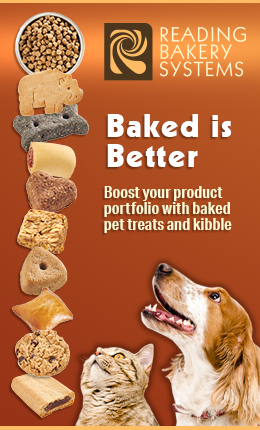I will share some ideas about how to carry out these principles:
Reducing food waste
As with human feed, it is important to reduce the pet food waste. This means to reduce the necessary amount of food for your pet and to avoid the excess of food that can be thrown away.
Recently, I found an interesting article about how some ideas contribute to reducing waste. The Al-powered dog food vending machine company from Finland release an innovative technology: a dog food vending machine. It resembles a doghouse, and it is designed as a pilot project for Hau-Hau Champion quest, owned by VAFO Group, to reduce dog food waste.
Regularly, there are multiple reasons to buy a pet food bag. If the purchase food does not please your dog, it often means that nearly a full bag of pet food is thrown away. The working mechanism of the vending machine is based on an artificial intelligence (AI) video recognition software. The machine identifies the approaching dog and drops kibbles into the bowl, so the 'client' tastes the product. Once the machine sees the leaving dog, it automatically disinfects the bowl using UV light and is ready to serve its next 'client'. As one of their executives says, in this way dogs have the chance to taste the food before, which helps to reduce pet food waste in the future.
For some pet parents, preparing homemade diets with fresh and natural ingredients can reduce reliance on processed and packaged foods and packaging control waste. Additionally, you control food quality and reduce waste.
Regarding pet food manufacturing, 'reduce' means to take precautionary measures. One way to reduce waste during pet food production is to optimize the processes to minimize the waste, including the efficient use of ingredients, the optimization of recipes to reduce unused byproducts, and the efficient management of the supply chain to minimize excess inventory. Choosing sustainable and local ingredients ethically produced in pet food production is essential to reduce the industry's environmental impact. It is also important to adopt sustainable fishing and agriculture practices for some ingredients, such as fish and cereals.
Setting up an effective wasting management, such as composting organic waste and recycling packing materials, helps to reduce the environmental impact of the pet food production and promotes sustainability in the supply chain.
Recycling containers and packing materials
Pet food manufacturers adopted sustainable packing practices, for example, using recycled, biodegradable, or compostable materials to minimize their impact on the environment; most of them are in containers that can be recycled. One must be sure of fulfilling the recycling requirements of their city properly. In addition, many companies are using more sustainable packaging, such as recyclable or biodegradable ones, which may also be an option to consider. Circular solutions are fundamental. Nowadays, consumers have a great interest in recycling, even in the recycled content, as 50% of consumers aged 44 years inform to have bought a product according to the packaging content.
In terms of production, the pet food industry contributes to the recycling of ingredients and byproducts. In pet food production, many byproducts for human consumption can be recycled and used as ingredients. For example, meat byproducts and vegetables that do not fulfill quality requirements for human consumption can be processed and used in pet food production, reducing waste.
Reusing safe food waste
You can use food waste if it is safe for your pet health. For example, chicken or lean meat can be added to your dog's diet, if they are free of damaging seasoning or ingredients. To do that, it is important to investigate which foods are safe and which are toxic.
According to the industry, the reuse of pet production resources implies the efficient use of energy, water, and natural resources. This includes technology applications and procedures that minimize energy and water consumption in the production facilities, as well as the use of renewable energy and conservation practices.
To summarize, the application of the three Rs principle (reduce, recycle, and reuse) in pet food production means taking measures to reduce waste, recycle and reuse resources, and adopt sustainable procedures in each part of the production process. This not only benefits the environment, but also promotes health and well-being to pets and their owners.
By: MVZ. Armando Enríquez de la Fuente Blanquet
Source: All Pet Food Magazine
You could be interested: Greenwashing in pet food: what it is and how to avoid it































